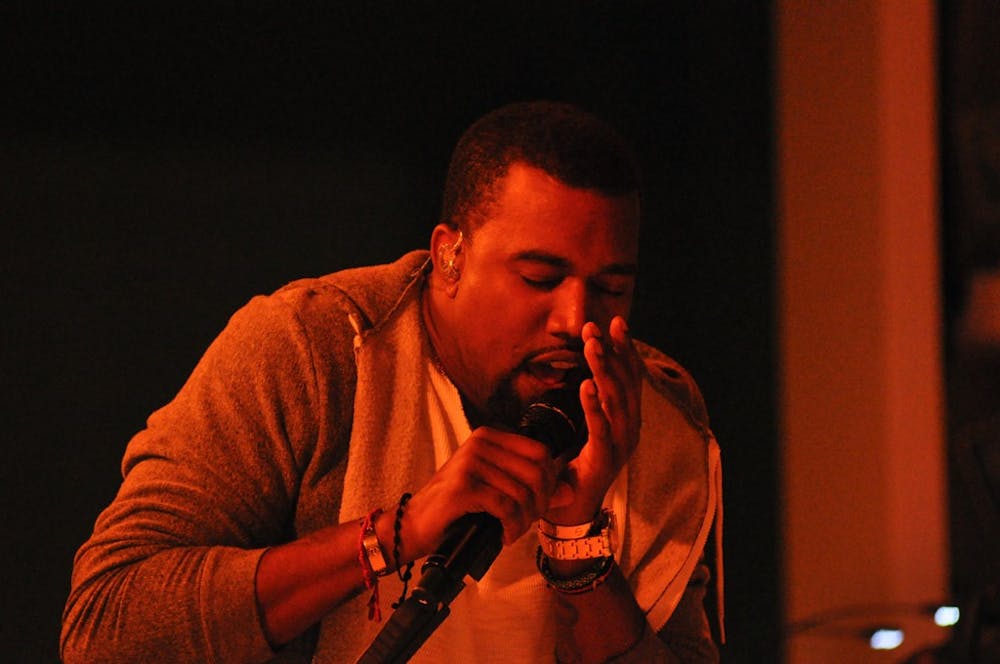Kanye West’s Jesus is King marks his ninth consecutive number-one album debut, tying him with Eminem’s record. This 27-minute-long album is Kanye’s love letter to God and his own religious calling. But why now?
Kanye has been a controversial figure in pop culture since, well, forever. He is constantly offending, defending, going back on things he said and tweeting gibberish. This is all without mentioning his statements that he will be running for president. Confidence is a quality he has never lacked — he claimed recently in an interview with Beats 1 presenter Zane Lowe that he is “unquestionably, undoubtedly, the greatest human artist of all time.”
This quote has been haunting me for a bit. I am certainly able to recognize Kanye’s unique talent, despite the fact that I don’t particularly like him, but this is a wildly bold statement. I know plenty of people who don’t like his music at all, and frankly I’ve heard better lyrics from hip hop artists, like Anderson .Paak and, dare I say, Post Malone.
In September 2018, only about a year ago, Kanye appeared on a single with Lil Pump called “I Love It,” rapping explicit lyrics about sex that can’t be published because of their vulgarity. The release of this song in relation to the message of Jesus is King makes the album feel like more of a confession, an atonement of his public sin. The juxtaposition is too great for it to be ignored.
“Separating art from the artist” is a debate that rages on, with Kanye often at the center of it. His attitude and lack of care for what he says or how he presents himself has made a lot of fans question him. So should we continue supporting him? That depends on your ability to do just that, to separate the flawed man from the music he makes. In listening to this album as objectively as I could, I would still rate it at about a 6.5.
2016’s The Life of Pablo far exceeds it in originality, and Jesus seems to be more about how Kanye wants to present himself in this moment rather than about creating original tracks.
It is also a continuation of the more bluntly religious themes that appeared on Pablo, Kanye’s seventh album. Though perhaps Pablo’s exploration of the themes from both the devout and non-religious perspectives that existed within Kanye at that time created more interesting lyrics.
First, it is extremely short. While Pablo clocked in at about an hour and six minutes, Jesus is King is a full 27-minute round-trip. Something I can’t say anything negative about is the production on this album. Smooth and concise, Kayne kills it in this category yet again.
The first half of the album is, frankly, forgettable. Doing nothing too original, I find myself skipping to the sixth track on my revisits to the album. “Follow God,” the album’s third track, uses the same sample familiar to fans from Pablo’s “Father Stretch My Hands Pt. 1.” The sample is from Pastor T.L. Barrett’s version of the Methodist hymn “Father I Stretch My Hands To Thee.” When I first heard this on Pablo, I was blown away by the seamless incorporation of gospel and hip-hop, and I had hopes that this album would continue with more original sounds like this, but instead it just pulls from what he has already done.
A poignant moment comes in “On God,” with Kanye rapping, “Thirteenth amendment, gotta end it, that’s on me,” in reference to his 2018 comment that slavery was a choice and people were “mentally enslaved” for 400 years. While the track is one of the stronger ones on the album, this pseudo-apology mixed with other lyrics about his greatness make his message convoluted.
A personal favorite is “Everything We Need,” featuring Ty Dolla $ign, the sixth track. It’s also got a melodic line of “oohs” by Ant Clemons, who worked with Kanye on his 2018 album Ye. This song flows from the vibrating opening into the clipped beats and back again without seeming to try too hard, something I can’t say about the rest of the album. “Use This Gospel” is also one of the better songs on the album, the consistent piano beating along to Clipse’s verses and Kanye’s soft singing. This is reminiscent of his song “Only One,” with Paul McCartney. Kanye’s lapse into the softer sounds of his pleasant singing voice is a welcome break. Throwing in a Kenny G sax solo also works surprisingly well.
Overall, this is a very listenable album. Well-produced and interesting enough, I have found myself revisiting it, even awarding certain songs with a victory lap. But I don’t see it’s lifespan being as long as Kanye’s other albums. Yes, he has always been religious, but maybe the album should’ve been called Kanye is King.





